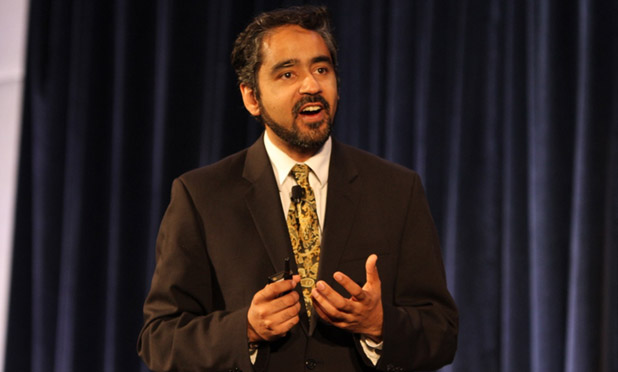EMBS is the world’s largest community of biomedical engineers or, more appropriately, of researchers interested in biomedical engineering problems. Although it exists within IEEE, many EMBS members come from fields other than electrical or electronics engineering. More importantly perhaps, members come from all corners of the globe, including a rapidly growing membership in many developing countries. This is unchartered territory for a major research community that started barely 60 years ago and these changing demographics call for a thorough evaluation of the future role of EMBS. Including members across 97 countries means that EMBS needs to play a role in shaping the landscape at the interface of health and engineering in not just the developed nations but also those that are still struggling with a heavy burden of preventable diseases. EMBS today stands at the cusp of a golden opportunity to bend the arc of history towards a healthier global society. If EMBS is to stay relevant, it must ensure that all of its members feel that the society continues to solve the grandest challenges in health and engineering in all parts of the world.
The grandest challenges in health facing the world today are far more complex than problems that can be addressed by elegant mathematical solutions, superior computational models and devices that defy imagination. The health challenges that we face in many low and middle income countries are rooted in social norms, lack of access to education, sanitation and non-existent medical facilities. EMBS members who want to tackle these grand challenges will have to develop a more sophisticated understanding of these socio-technical challenges if they are to succeed in addressing them. This means that we need to provide platforms where these problems can be discussed and rigorously analyzed. While some activity has started in the form of meetings that address challenges in global health, a lot more needs to be done to make this a mainstream theme.
Impact in global health also means understanding the complex socio-cultural terrain where the stubborn challenges of global health originate and impede progress. This would mean that EMBS members will have to work closely with domain experts, who will come from all sorts of groups including public health professionals, NGOs, governments and local populations, so our technologies and solutions are able to make a lasting and tangible impact. Our ability to work closely with sectors that we have not worked with before would also bring us in closer connection with policy makers. This would allow EMBS to impact society in regions where we have not had any role in the past. This will invariably increase the richness of the EMBS fabric.
While the challenges facing the world today have multi-faceted complexity, we are also fortunate to see a new wave of EMBS members who care deeply about the problems of regions that they have never visited or can barely pronounce the name of. This indeed is an unprecedented time in the history of the organization, where on one hand new chapters are mushrooming in far flung areas of the world and on the other, students from Boston to Beijing are now excited about tackling the challenges of Botswana and Bolivia. EMBS needs to continue to provide them a platform to grow, shape their ideas and put them to rigorous analysis and judgment of their peers. Anyone who has been to the annual meeting recently knows that EMBS is no longer a festival of science and engineering of the developed world, but it is a now a celebration of quality research that represents and aims to address problems in all corners of the world.
While the diversity of research, scholarship and of course the demographics of attendees at EMBS meetings is exciting, sustainability will require some serious thought, stewardship and advocacy. Creation of new journals or tracks within journals that provide space for research of the highest quality focused on global health needs to happen. Some activity in this regard is seen in some journals but a more comprehensive effort needs to take place. Second, just as clinicians played a key role in motivating engineers and scientists in our ranks to tackle some of their most difficult problems, we need to give opportunity to stakeholders in global health to inspire us. This will require reaching out to those who work in the field and face challenges that we have the capacity of solving. Third, we need to continue to provide mentorship to inspiring, diligent and motivated students in the developing countries, who represent the best and brightest of our future. While all of these activities are happening in some form already, a structured and coherent policy in global health will be necessary to create lasting impact.
The growth of EMBS in all parts of the world has given us an unprecedented opportunity to improve the lives of millions through innovation. What we need is the innovation of thought and policy to capitalize on this rare opportunity.



